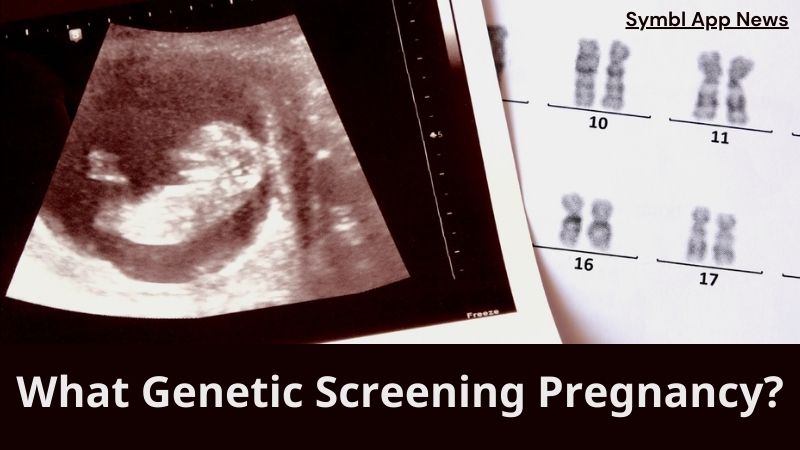Genetic screening during pregnancy is a crucial aspect of prenatal care, offering valuable insights into the health and well-being of both the mother and the developing fetus. These screenings encompass a range of tests designed to identify potential genetic disorders or chromosomal abnormalities, allowing healthcare providers to offer appropriate medical guidance and interventions. Understanding what genetic screening pregnancy from Symbl.app entails can empower expectant parents to make informed decisions about their pregnancy journey.
What genetic screening pregnancy involves various tests and procedures aimed at assessing the genetic health of the developing fetus. These screenings play a pivotal role in detecting potential genetic conditions early in pregnancy, enabling healthcare providers to offer timely interventions and support.
What Genetic Screening Pregnancy?
1. First-Trimester Screening (Composite Examination):
One of the initial tests conducted during pregnancy is the first-trimester screening, commonly referred to as the combination test. This comprehensive assessment typically occurs between 11 and 14 weeks of pregnancy and involves a combination of blood tests and ultrasound measurements. These tests evaluate various factors, including the levels of specific proteins and hormones in the mother’s blood and the thickness of the fetus’s neck (nuchal translucency). Abnormal levels of these substances can indicate an increased risk of chromosomal abnormalities such as Down syndrome or trisomy 18.

2. Cell-Free DNA Testing (cfDNA):
Another important genetic screening test during pregnancy is cell-free DNA testing (cfDNA), also known as non-invasive prenatal testing (NIPT). This advanced blood test analyzes fragments of fetal DNA circulating in the mother’s bloodstream to detect common chromosomal abnormalities, including trisomy 21 (Down syndrome), trisomy 18 (Edwards syndrome), and trisomy 13 (Patau syndrome), as well as sex chromosome abnormalities. NIPT is typically performed after 9 weeks of pregnancy and is considered highly accurate, providing expectant parents with valuable information about the genetic health of their baby.

3. Carrier Screening:
In prenatal care, carrier screening emerges as a crucial component of genetic assessment. This procedure entails examining the genetic profiles of prospective parents to ascertain the presence of gene mutations linked to specific hereditary disorders like cystic fibrosis, sickle cell disease, or Tay-Sachs disease. Though it doesn’t unveil details about the fetus’s genetic composition, carrier screening aids in gauging the likelihood of transmitting genetic conditions to future generations, facilitating informed decision-making regarding reproductive choices and potential interventions.
4. Ultrasonography:
While not classified as a genetic test, ultrasound scans are integral to prenatal care, uncovering physical anomalies in the fetus. These scans detect structural irregularities like heart defects or neural tube defects, prompting additional genetic testing or medical interventions as necessary. Beyond diagnosis, ultrasound imaging offers expectant parents a visual glimpse into their baby’s growth and development, providing reassurance and enabling early identification of potential health issues. This proactive approach fosters informed decision-making and ensures comprehensive care throughout the pregnancy journey.

5. Diagnostic Testing:
In certain instances, screening assays may allude to an augmented susceptibility to a hereditary disorder or instigate apprehensions predicated on ultrasonic findings. In such scenarios, healthcare practitioners may advocate for supplementary diagnostic evaluations, such as chorionic villus sampling (CVS) or amniocentesis. These procedures entail sampling fetal cells for chromosomal analysis, furnishing a definitive diagnosis of hereditary conditions. While diagnostic testing yields invaluable insights, it is imperative to acknowledge that it carries a slight peril of miscarriage, and expectant progenitors should meticulously ponder the merits and demerits in consultation with their healthcare practitioners.
Genetic analysis during gestation plays a pivotal role in ensuring the well-being of both the maternal figure and the progeny. These analyses furnish expectant progenitors with invaluable insights into the genetic well-being of their progeny, empowering them to make enlightened decisions concerning their gestational journey. By comprehending what genetic analysis during gestation entails and engaging in dialogues with healthcare practitioners, expectant progenitors can embark on proactive measures to fortify the well-being and sustenance of both the maternal figure and the progeny.
Conclusion
In conclusion, genetic analysis during gestation encompasses an array of examinations and procedures aimed at evaluating the genetic well-being of the developing embryo. These analyses provide invaluable insights into potential hereditary conditions or chromosomal irregularities, empowering expectant progenitors to make enlightened decisions concerning their gestational expedition. By comprehending what genetic screening pregnancy analysis during gestation entails and engaging in dialogues with healthcare practitioners, expectant progenitors can embark on proactive measures to fortify the well-being and sustenance of both the maternal figure and the progeny.
